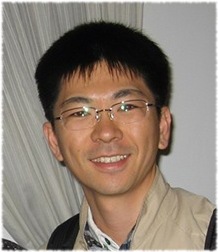Biography
Hobin Yoon is a Ph.D. candidate in the College of Computing at the Georgia
Institute of Technology, and is advised by
Dr. Ada Gavrilovska and
Dr. Karsten Schwan.
Prior to joining Georgia Tech, he was a Senior Researcher at Samsung Electronics from 2005 to 2010
and a Senior Software Engineer at Thinkware Systems from 2001 to 2005.
He earned his MS in Computer Science from Georgia Institute of Technology
and his BS in Computer Engineering from Seoul National University.
ResearchHobin's research is focused on Data Placement in Cloud Storage Systems that offer greater flexibility for making finer, online cost-performance trade-offs using (a) data access statistics and (b) models that capture information regarding cost and user experience. He specifically looks at ways of achieving better cost-latency trade-offs in the following system domains: NoSQL database systems (Mutant), Geo-replicated cloud storage systems (Acorn), and Web caching systems in edge cloud (SpaceLease). NoSQL Database Systems: LSM tree-based NoSQL database systems, such as BigTable, RocksDB, and Cassandra, do not provide seamless cost-performance trade-offs. A database engineer wanting to meet a budget cut by moving the data to a cheaper database would need to go through a time-consuming, error-prone, and laborious live data migration. Mutant automatically places the underlying storage blocks to the storage devices with different cost-performance characteristics to meet the cost requirement while providing low data access latencies. He implemented Mutant by extending RocksDB. Geo-Replicated Cloud Storage Systems: With the traditional full replication systems, the storage cost grows proportionally to the number of geo-replicas. Acorn replicates data to the data centers where the data is likely to be accessed in the future using the access statistics of data attributes, thus achieving better cost-latency trade-offs. He implemented Acorn by extending Apache Cassandra. Web Caching Systems in Edge Cloud: Today’s cloud cache providers, such as Amazon CloudFront, Google Cloud CDN, and Azure CDN, do not provide any control over the data access latencies because the cache providers share the cache space among CPs (content providers) in an effort to optimize the aggregate cache utility. We propose SpaceLease, a cache space-based cloud cache lease model, that provides predictable data access latencies. The evaluations using the 30-day Akamai production data access traces over the 46 CPs show that, with SpaceLease, CPs can control their data access latencies. Publications
Contact
KACB 3201.
Last updated on May 25, 2018.
|
